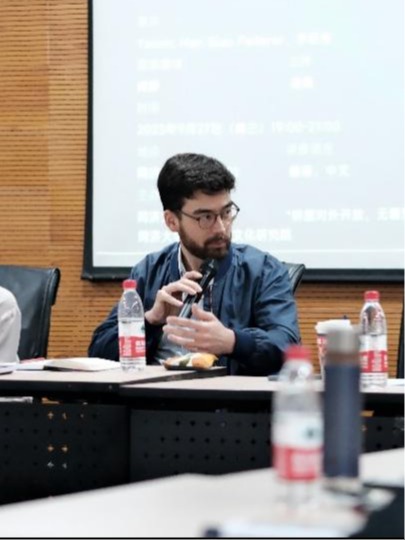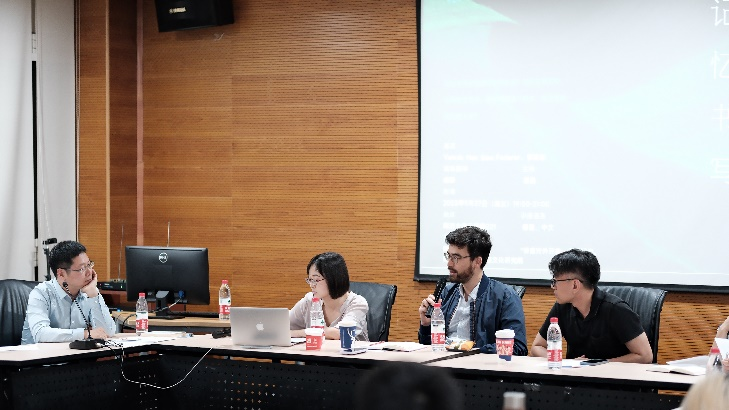On the evening of September 27th, 2023, Mr. Yannic Han Biao Federer, a renowned contemporary German writer, and Professor Li Shuangzhi from the Department of German Language and Literature at Fudan University were invited to discuss the issue of memory writing in contemporary German ethnic-diasporic literature at Tongji University, hosted by the Department of Chinese Language and Literature and the Institute for European Thought and Culture at Tongji University. The discussion was facilitated by Dr. Shang Jing from the Department of Philosophy at Tongji University, who provided live translation, and moderated by Dr. Hu Sang from the Department of Chinese Language and Literature.

Yannic Han Biao Federer began by reading an excerpt from the third chapter of his latest novel Tao (2022) in German. He then delved into the familial memories and identity themes within the novel. His family's story is intricately tied to history. His grandfather was a Chinese immigrant in Indonesia, and his father later immigrated from Indonesia to Germany. This familial history drove him to conceptualize this fictional story. It's not only a family narrative; but also a narrative of an era, given the connection between his father's immigration and the Indonesian massacre. In contemporary German society, Germans have started to take an interest in ethnic minorities but often simplify their histories, believing that their life (for instance, Asians) is distant and unrelated to Germany. Through his writing, he aims to restore the actual experiences and memories of these people. From the perspective of Germany or Europe, the once vital issue of ethnicity has gradually lost its significance. In order to demonstrate the diverse identities, his novel constructs a fictional journey in Hong Kong, a journey of exploration. His narrative style is intertwined with specific history periods and their languages. Since the past cannot be fully grasped, and the language is highly free, the novel becomes disjointed and fragmented. This discontinuity hinders the genuine exploration of the past. Certain historical past events cannot be confronted directly, thus making memory-seeking a difficult process and even an enduring trauma. In his novel, the process of seeking memories is, in fact, a presentation of the process of dealing with trauma. Through fragmented and disjointed writing, he attempts to establish an endless communication and dialogue with familial memories and their traumas.

In their conversation, Li Shuangzhi pointed out that the novel Tao used the fragmented narrative form to present the issue of memory in a diverse society. By superimposing and collaging memories, different memories of people from different eras come together within one text, allowing them to encounter each other in the same time and space. The significance of Federer's work lies in his efforts to force the German society to pay attention to the Other and see them as flesh and blood just like themselves, thus reconstructing the relationship between origin and belonging. Federer criticizes the misconceptions shared in the German society and shatters the illusion of a homogeneous white society via the historical narrative of constantly migrating generations and continually evolving identities.
